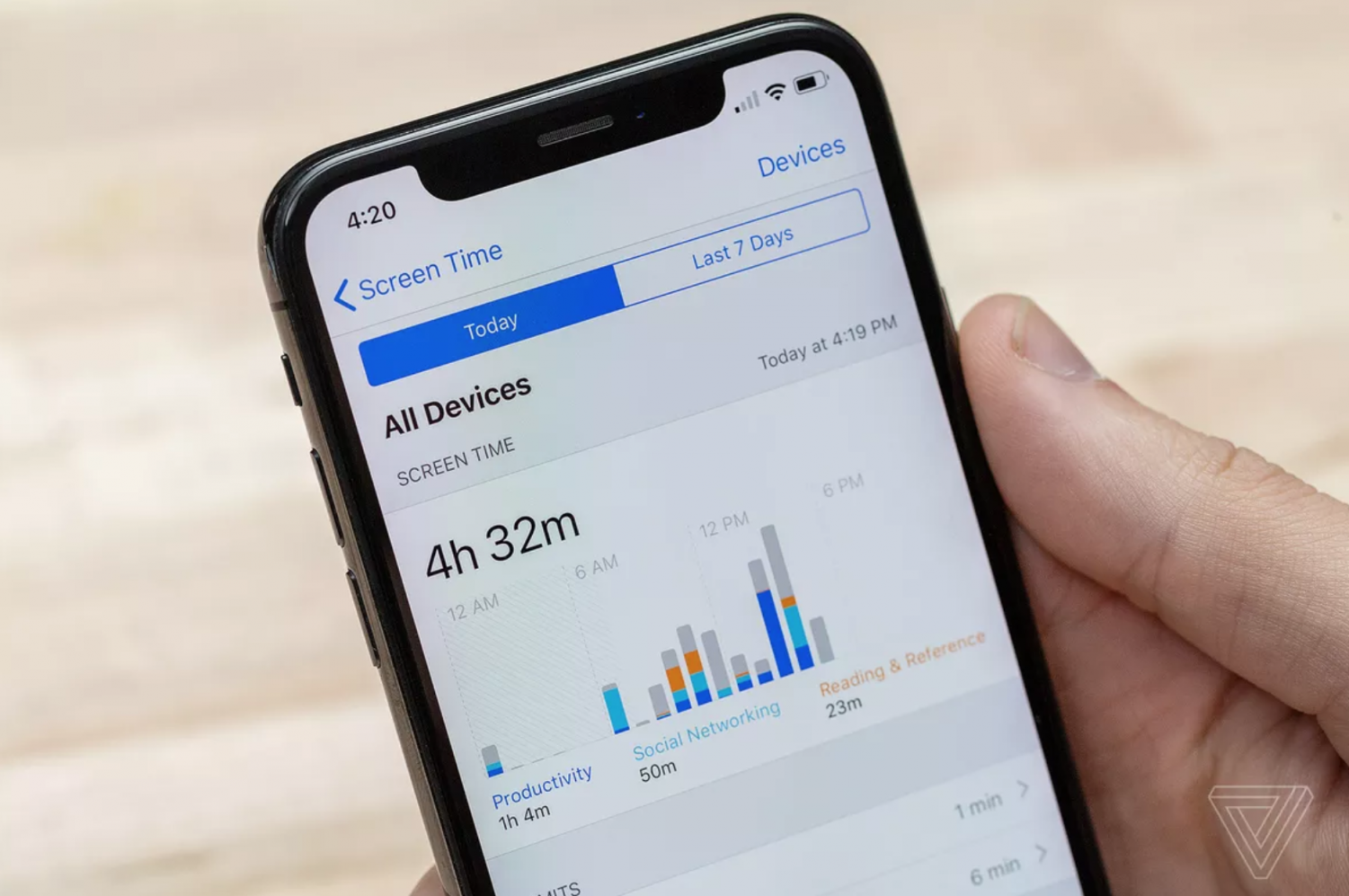Staying Safe with Screen Time
February 19, 2020
As society shifts towards highly technology-based education facilities, keeping screen-time limitations in mind can be difficult. The increasingly frequent use of technological devices, specifically laptops and cell phones, has raised a pervasive question concerning The Village School’s Global Campus learning: Does the amount students utilize technology in and because of school cause students exceed teen screen time recommendations?
In 2018, CBS revealed that children and teens between the ages of 8 to 18 spend an average of more than seven hours a day looking at screens. However, The American Heart Association recommends the new screen time limit for kids to be a maximum of just two hours per day. However, exceeding screen time limits increases as technology usage has become an integral part of schoolwork and homework at The Village School.
“I’ve been at Village for 4 years and we use [technology] a lot, especially laptops,” said sophomore Ella Xu. “If I go home and there’s no laptop with me there’s no way I can complete all my assignments. It’s definitely much more easily tiring and a downward cycle. It also distracts me from getting enough sleep.”
In addition to a mass integration of technology in our school’s homework culture, screen use in classrooms across The Village School are not regulated or monitored. Overall usage in classrooms is often overlooked during lessons.
“We need to check with the American Pediatric Association to regulate what’s allowed,” said elementary school nurse Caz Hubbard. “[The] school should be in contact with [the APA] and ensure that we are within those guidelines for students’ health”
Furthermore, according to CBS, the rising use in technology can be partly blamed for the increase in imperfection vision, as 6 in 10 people wear glasses or contact lenses, amounting to 60% of Americans. The triggering of low-energy levels and depression is also said to be associated with increased screen time.
“For high school kids, all three – deteriorating vision, concentration issues, or learning issues – could be impacted,” said nurse Hubbard. “I’m aware that the need [for] glasses has increased, even for the use of tired eyes.”
Hubbard further mentioned how she has fortunately not seen any severe cases of vision degradation caused by excessive screen time regarding students at The Village School, but there have been some minor cases of irritation that have sprung amongst high schoolers due to overuse, such as behavioral violence or aggravation along with increased use.
Excluding academics, simply the overuse of technology in regards to media entertainment and social media can have devastating impacts on student self-esteem. The Huffington Post in 2017, explained that 60% of people using social media reported that it has impacted their self-esteem in a negative way. Social media has been linked to higher levels of loneliness, envy, anxiety, depression, narcissism and decreased social skills.
“I think we base ourselves too much on the things we get from social media,” said Xu. “It’s not the best forum to do so. It changes our behavior and mindset as well.”
The first step that is recommended to limit the overuse of screen time and keep mental spaces intact starts with close observation and responsibility within classrooms: an awareness across The Village School to take initiative on this issue is necessary.
“Teachers [should start] thinking about linking activities to off-screen projects,” said nurse Hubbard. “[It is] not a bad idea for the school to question or give advice for parents [to] monitor at home. High schoolers work until 11 P.M. at night and, as a result, [during] the whole day at school, [their] eyes are tired. In general, time management is a biggie.”
Additionally, technological devices themselves have numerous features that make the use of them healthier. According to Healthline, taking small breaks in between long periods using technology has proven to be extremely beneficial.
“Time restraint, lighting in the classrooms-reflection of the screen, adjust the screen if needed to accommodate,” said nurse Hubbard. “Also, continue blinking. It’s very natural not to blink when working with electronics for lengthy durations, but it’s definitely important for resting the eyes.”
For homework purposes, these initiatives can be extremely effective to the brain and for the eyes when working for long durations of time. Especially keeping in mind the practice of using bigger screens instead of straining the eyes with smaller ones is a key step to be taken
“We could make screen sizes larger so it’s less stress on the eyes,” said Xu. “Staring at a panel for hours is very limiting to our eye muscles.”
Ultimately, it is about finding a healthier space for the school to accomplish holistic health, fitness, and wellness, in a way that aids students, in terms of screen time as much as possible.
“Occupying yourself with other things and getting hobbies will naturally make you spend less time online, and help you finish the work you need to quickly,” said Xu. “If you have more things, you tend to have a planner or schedule. This way we can better technology usage and ourselves.”
